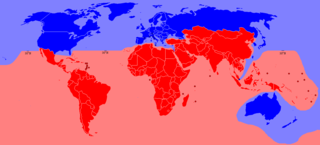
Although I learned a lot from the conference, I was nagged by the reality that most of the knowledge flows are still going from the North to the South. Even with more “participatory methodologies” in place to measure results, the control and direction is often centralized in remote capitals. A lot of money has gone into ICT investment, but one participant surmised that this has led to the information rich getting richer and the information poor getting poorer. If that’s true, it’s worrisome.
And, what about the relevance of KM itself in local contexts? Mike Powell from IKM Emergent—a research program on KM for development funded by the Dutch Government—posited at the conference that the centralized control, as well as the top-down, linear, and quantitative biases that still characterize KM work is “wildly unrealistic” in complex, dynamic, unpredictable, and emergent environments. A paper he distributed at the conference noted that “the knowledge foundations of current practice are fundamentally inconsistent” with what is actually needed if development is to take place. Development organizations tend to focus on their unique selling points as they compete for funds and service contracts, added the paper, but this puts “at risk any sense of collective endeavor, shared learning and the joint construction of public goods, as well as the local level cooperation which is often essential in practice.”
Of course, there are vested interests involved in keeping KM in the hands of the experts. It’s worth remembering, however, who the new technologies—and KM processes—are ultimately designed to serve. The Bahá’í International Community released an insightful paper recently (Education and Training for the Betterment of Society; http://news.bahai.org/story/809) that touched on this “bigger picture.” Pointing out that 95% of the new science in the world is created in countries comprising only one-fifth of the world’s population, the paper stated that “the division of the world into producers and users of knowledge is a deficient characteristic of the current world order—one with deep implications for the quality and legitimacy of education, science, and technology as well as governance and policy-making. If most of humanity continues to be regarded as users of technology created elsewhere, it is unlikely that sustainable and meaningful development will take root.” The paper went on to note the imperative of technology being developed to meet local needs related to families and communities, including addressing not only their material needs, but also their social and spiritual prosperity. The latter is often left out of the development equation, but I see it as central. (For other brief comments on KM and cooperative action, see my blog at: www.modelsofunity.net/category/blog)



